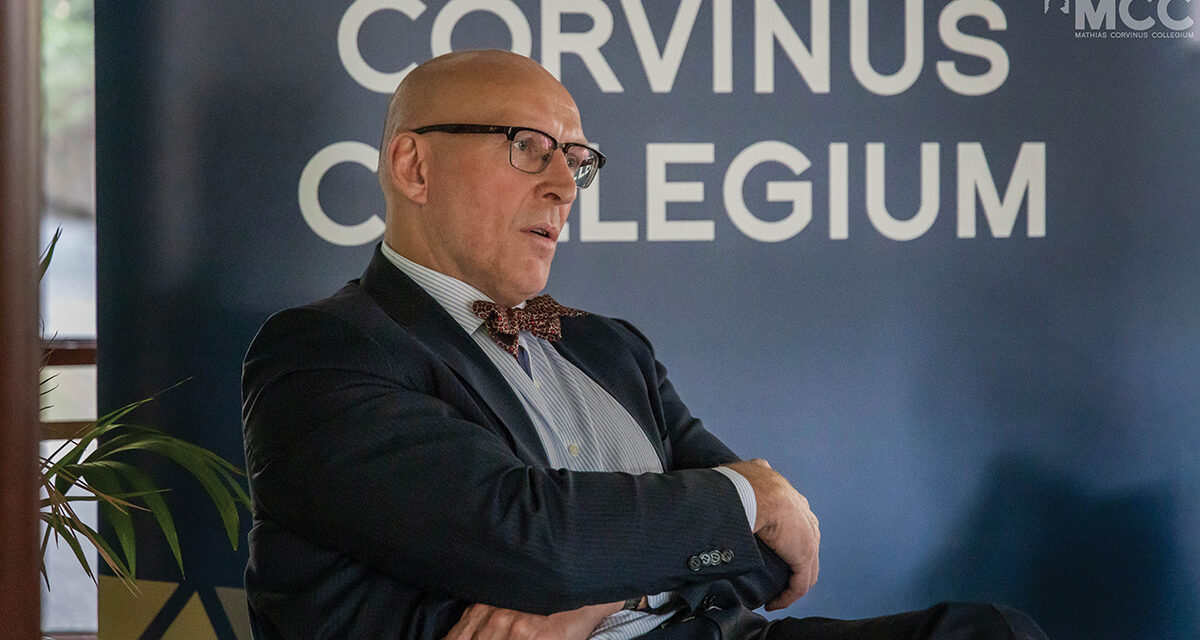Andreas Kinneging, a conservative philosopher and professor of legal philosophy at the University of Leiden, wrote a book about the concept of good and bad. Mandiner interviewed him about this.
The title of the volume published in 2020 is De onzichtbare maat, or the invisible measure. According to the professor, the question is: do we understand what is good and what is bad? We must return to the traditional view of reality, including good and evil.
Today, woke-ism is a kind of common denominator for people who believe that Western society is corrupt to the core. Not because Western society has lost its traditions and Christian roots, but because it is not egalitarian enough. Egalitarianism has recently taken on a broader and more radical definition. In communism, egalitarianism referred to the socio-economic equality of all people. Now it applies not only to this, but to the equality of black and white, the equality of men and women, the equality of homosexuals and heterosexuals, and so on. This is how sexism, homophobia, xenophobia, transphobia, and binary thinking become curse words. Each time the accusation is the same, namely that people are not treated equally. Woke-ism is therefore something new, but at the same time old. More radical than communism. These people believe that society is deeply rotten because there is great inequality everywhere and the state must correct this. In other words, it means that the government has to control everything.

Source: Oscar Brak / NurPhoto / NurPhoto via AFP)
To give an example, the woke people say that all organizations should represent the people equally. So 50 percent are men, 50 percent are women, 5 percent are homosexuals, 10 percent are Gypsy employees, etc. Many Turkish and Moroccan Muslims live in the Netherlands, so they will demand that companies employ them. This would mean, for example, that an entrepreneur would no longer be free to choose whom to employ. This obviously leads to a deterioration in quality. Woke-ism says more diversity means better quality, but the truth is that diversity and quality are not related at all. We can have a diverse population without quality, and we can have a uniform population with good quality. There is also a debate in our universities about hiring more professors of color. As a young white male, you would have no chance of becoming a professor today. They need black people, women, transgender people. Does this lead to better quality? I do not think so. Intellectual quality has nothing to do with external factors such as gender, skin color or anything. We must be the opposite of woke: we must be color and gender blind. And the best quality people should be in the workplace.
I agree with Viktor Orbán on this issue. I hope you will have the stamina to continue to oppose the radical individualism and egalitarianism of Western Europe, because not everything can be relative. The basis of a healthy society is the traditional family with a man and a woman and their biological children. That doesn't mean we hate all people who don't fit in or grow up in any other way. We have been adopting children since the beginning of humanity. And it's good to have one, but you shouldn't pretend that everything is equal. Adoption is a necessary solution in certain circumstances, but should be avoided if possible because it is worse than a full biological family.
The left is very historically savvy: it calls almost anyone on the right a far-right. It's a simple but effective way to intimidate people into thinking "I'm a good person, so I can't vote for these". But we are not far-right, we are simply right-wing. We say what the Christian Democratic parties said twenty or thirty years ago. But these parties shifted to the left, so today we are the successors of the old Christian Democratic parties. It is important that, as Christian Democrats, we know what we are talking about. And that means we have to study our own great philosophers. We have to study political philosophy, social philosophy, anthropology and so on. Unfortunately, these things are not very popular today.
Source and full interview: mandiner.hu/Veszprémy László Bernát
Featured Image: Andreas Kinneging. Photo: MCC













